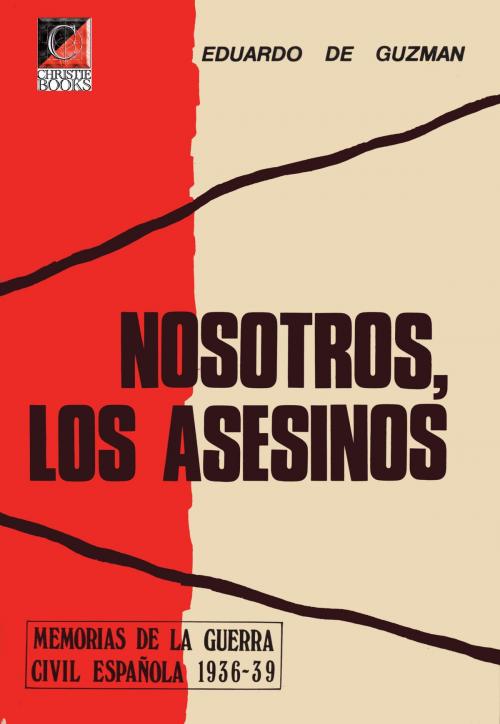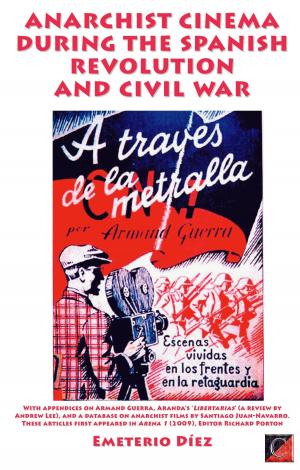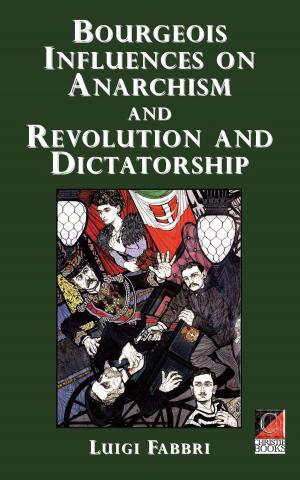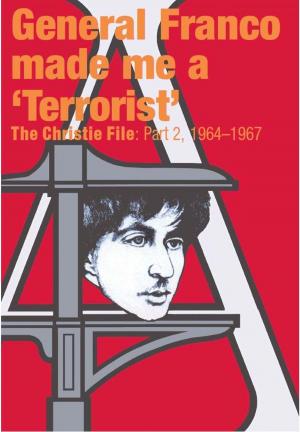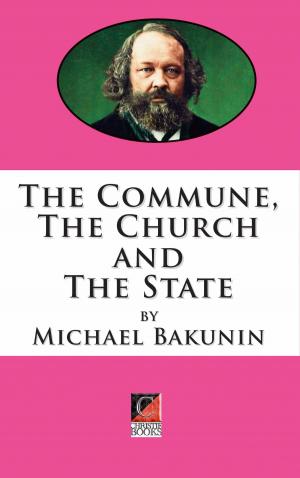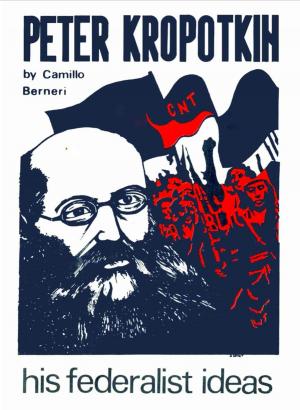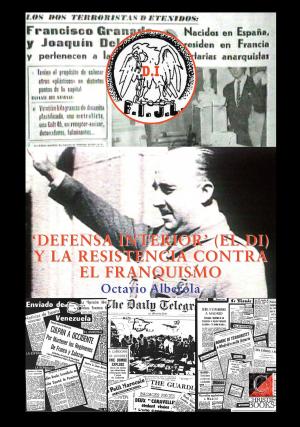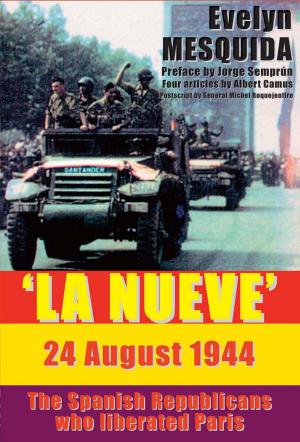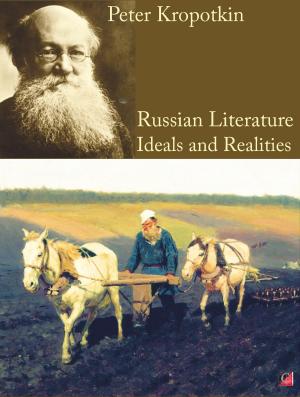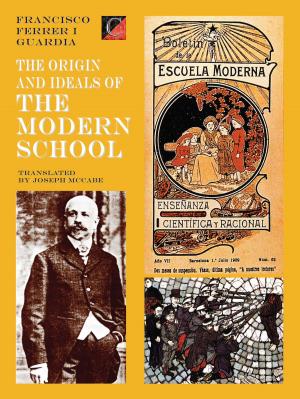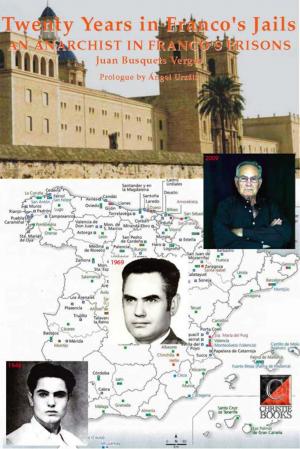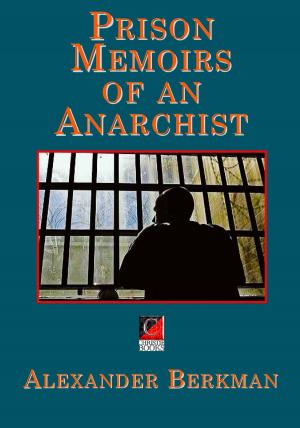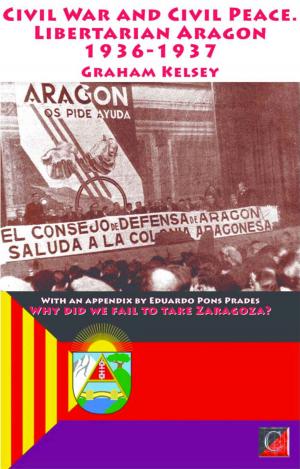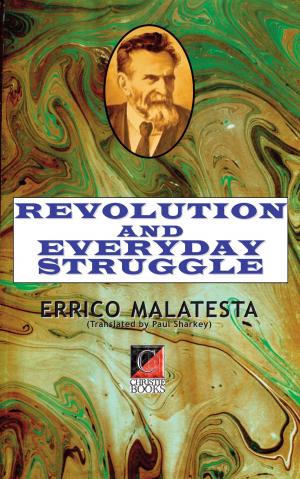NOSOTROS, LOS ASESINOS
Vol 3: Memorias de la Guerra Civil Española 1936-39
Nonfiction, History, Modern, 20th Century, Biography & Memoir, Political, Historical| Author: | Eduardo de Guzmán | ISBN: | 1230000271282 |
| Publisher: | ChristieBooks | Publication: | September 30, 2014 |
| Imprint: | ChristieBooks | Language: | Spanish |
| Author: | Eduardo de Guzmán |
| ISBN: | 1230000271282 |
| Publisher: | ChristieBooks |
| Publication: | September 30, 2014 |
| Imprint: | ChristieBooks |
| Language: | Spanish |
«Nosotros, Los Asesinos» (Memorias de la Guerra Civil Española 1936-39). En «Nosotros, los asesinos», narra Eduardo de Guzmán, con desgarrada y dolorida sinceridad, una impresionante experiencia vivida en los años más trágicos de su vida y de buena parte de los españoles. Relata los hechos como sucedieron, con precisión de fechas, nombres, apellidos y lugares. «Nosotros, los asesinos constituye un fuerte alegato contra el fanatismo, la intolerancia, la crueldad y la guerra, con cuanto esta última lleva aparejada. Es el relato de una gran tragedia colectiva y una lección para evitar que todos, dejándonos arrastrar de nuevo por el huracán de pasiones y violencias, volvamos a cometer el terrible error de descender al infierno de una guerra civil.
WE, THE ASSASSINS (Memories of the Spanish Civil War 1936–39) is the third and final volume of the powerful and moving autobiography of Eduardo de Guzmán, the editor from February 1937 to March 1939 of the Madrid-based Castilla Libre, the daily newspaper of the anarcho-syndicalist workers' union, the National Confederation of Labour (CNT). It picks up the story of the author’s odyssey through Franco’s concentration camps of Los Almendros and Albatera, via the notorious Falangist and police chekas in Madrid’s Calle de Almagro and La Calle de Alcalá, to the prisons of Yeserías and Santa Rita.
Condemned to death by firing squad in January 1940, the author had his sentence reduced 16 months later to one of 30 years imprisonment. Released on conditional liberty (parole) in 1944 he was, for a short time, general secretary of clandestine National Committee of the CNT. Rearrested in 1951, he spent a year in Oviedo prison accused of espionage.
Guzmán’s memoir provides a unique and gripping first-hand account of the furious repression in the aftermath of the Francoist victory of 1 April 1939. This is a richly descriptive story of the events the author lived through between the summer of 1939 and May 1941 and exposes in shocking detail the extent of Francoist brutality and bloodlust.
For me, Guzmán is, undoubtedly, the Spanish Solzhenitsyn: the chronicler and indicter of one of Europe’s most enduring and bloodsoaked fascist regimes, one that killed more Spaniards than Hitler killed Germans; he is also the painstaking describer of his fellow prisoners of all political hues in their non-sectarian solidarity, of the guards, of the conditions of confinement, in fact of the whole world of post-war Francoist repression. The book had me gripped with every turn of the page, from his account of the fall of Alicantet to the moment he and his comrades were delivered into the hands of the triumphalist, spiteful secret-police and Falangist captors, and then the travails of Franco’s prisons where he faced, for 16 months, the imminent prospect of being taken out and shot.
My personal memories of the Brigada Politico Social’s sótanos of the Puerta del Sol, Yeserías and Carabanchel date from more than 20 years after the events described here, and are nowhere near as dramatic; but I recognise each and every one of the situations and characters — oppressors and victims — and empathise with the latter every step of the way.
Solzhenitsyn's One Day in the Life of Ivan Denisovich exposed the brutalities of Stalin's faraway prison system; Guzmán’s WE, THE ASSASSINS does the same for Franco’s ignored gulag archipelago just the other side of the Pyrenees. The pity is that this three-volume Civil War masterpiece — La muerte de la esperanza (1973); El año de la victoria (1974) and Nosotros, los asesinos: memorias de la guerra de España (1976) — remains more or less unrecognised in the very country whose history Eduardo de Guzmán relates so movingly.
«Nosotros, Los Asesinos» (Memorias de la Guerra Civil Española 1936-39). En «Nosotros, los asesinos», narra Eduardo de Guzmán, con desgarrada y dolorida sinceridad, una impresionante experiencia vivida en los años más trágicos de su vida y de buena parte de los españoles. Relata los hechos como sucedieron, con precisión de fechas, nombres, apellidos y lugares. «Nosotros, los asesinos constituye un fuerte alegato contra el fanatismo, la intolerancia, la crueldad y la guerra, con cuanto esta última lleva aparejada. Es el relato de una gran tragedia colectiva y una lección para evitar que todos, dejándonos arrastrar de nuevo por el huracán de pasiones y violencias, volvamos a cometer el terrible error de descender al infierno de una guerra civil.
WE, THE ASSASSINS (Memories of the Spanish Civil War 1936–39) is the third and final volume of the powerful and moving autobiography of Eduardo de Guzmán, the editor from February 1937 to March 1939 of the Madrid-based Castilla Libre, the daily newspaper of the anarcho-syndicalist workers' union, the National Confederation of Labour (CNT). It picks up the story of the author’s odyssey through Franco’s concentration camps of Los Almendros and Albatera, via the notorious Falangist and police chekas in Madrid’s Calle de Almagro and La Calle de Alcalá, to the prisons of Yeserías and Santa Rita.
Condemned to death by firing squad in January 1940, the author had his sentence reduced 16 months later to one of 30 years imprisonment. Released on conditional liberty (parole) in 1944 he was, for a short time, general secretary of clandestine National Committee of the CNT. Rearrested in 1951, he spent a year in Oviedo prison accused of espionage.
Guzmán’s memoir provides a unique and gripping first-hand account of the furious repression in the aftermath of the Francoist victory of 1 April 1939. This is a richly descriptive story of the events the author lived through between the summer of 1939 and May 1941 and exposes in shocking detail the extent of Francoist brutality and bloodlust.
For me, Guzmán is, undoubtedly, the Spanish Solzhenitsyn: the chronicler and indicter of one of Europe’s most enduring and bloodsoaked fascist regimes, one that killed more Spaniards than Hitler killed Germans; he is also the painstaking describer of his fellow prisoners of all political hues in their non-sectarian solidarity, of the guards, of the conditions of confinement, in fact of the whole world of post-war Francoist repression. The book had me gripped with every turn of the page, from his account of the fall of Alicantet to the moment he and his comrades were delivered into the hands of the triumphalist, spiteful secret-police and Falangist captors, and then the travails of Franco’s prisons where he faced, for 16 months, the imminent prospect of being taken out and shot.
My personal memories of the Brigada Politico Social’s sótanos of the Puerta del Sol, Yeserías and Carabanchel date from more than 20 years after the events described here, and are nowhere near as dramatic; but I recognise each and every one of the situations and characters — oppressors and victims — and empathise with the latter every step of the way.
Solzhenitsyn's One Day in the Life of Ivan Denisovich exposed the brutalities of Stalin's faraway prison system; Guzmán’s WE, THE ASSASSINS does the same for Franco’s ignored gulag archipelago just the other side of the Pyrenees. The pity is that this three-volume Civil War masterpiece — La muerte de la esperanza (1973); El año de la victoria (1974) and Nosotros, los asesinos: memorias de la guerra de España (1976) — remains more or less unrecognised in the very country whose history Eduardo de Guzmán relates so movingly.
